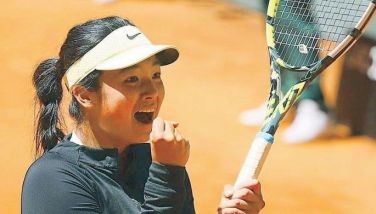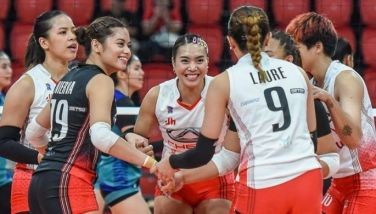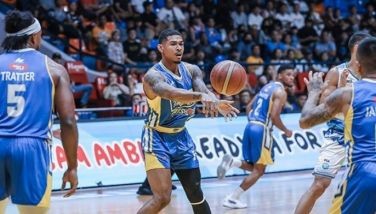PE and American football
The case for daily physical education classes (instead of the traditional twice-a-week paradigm) continues to be built both in the Philippines and overseas, in countries like the US, United Kingdom and Nigeria.
The stimulus for such a paradigm shift stems from, among others, the point raised by Dr Perry Mequi, that in the 20th century, obesity and what is currently known as “ lifestyle diseases†were not reflected in the list of medical problems. However, today, diseases such as cancer, diabetes, hypertension, infertility, ulcers, back pain, skin infections, gallstones, kidney, liver bone and heart diseases are all related to obesity.
To counteract these maladies, we are told that the World Health Organization (WHO) recommends that a) children and youth aged five to 17 should do about 60 minutes of moderate-to-vigorous physical activity; b) adults 18-64 years old should accumulate 150 minutes of moderate-to-vigorous physical activity per week and, for added benefit, at least 300 minutes per week; and c) for seniors 65 years and above, at least 150 minutes per week.
Will daily PE be more effective in promoting a desirable and healthy lifestyle of indulgence in physical activity?
Because there are no available data to help answer this important question, both the DepEd and the Commission on Higher Education (CHED) can probably encourage and support colleges and universities and even non-government organizations to do what scholars and practicing consultants call action-research.
The research that ought to be done over a number of years, will gather benchmark data from field experiments at the start of the study and track down the progress of participants included in the research over a period of time.
Come to think of it, the CHED periodically designates certain departments or programs in institutions of higher learning as “centers of excellenceâ€. In certain fields but we still have to see an institution accorded the distinction of being a center of excellence in PE and wellness. The absence of such a center has, I suspect, to do with the mindset of even the most enlightened education leaders, that PE is, as we stated in an earlier column, just inserted in the curriculum to give students a break from the rigors of classroom education.
The Foundation University (FU) in Dumaguete however appreciates the strategic value of such an experiment to gather empirical data and not go around in circles with anecdotal “ evidence†devoid of hard data.
The experiment, as planned, will require FU students to take PE five times a week, from Monday to Friday with each session lasting one hour. Students are to take PE for four consecutive terms.
Mequi asks himself will this intensive exposure to daily physical activity for one year develop a healthy habit of physical exercise and appreciation for the active lifestyle, or result in the opposite – a disdain for physical activity? FU plans to interview students and to send out questionnaires at the end of each year.
The battle to promote physical activity and wellness is somehow aided by a “surprise†ally – producers of consumer goods and suppliers of wellness products whose campaign is focused on extolling the “ Wellness Generation†and inspiring and motivating them through heavy advertising to adopt a healthy lifestyle. If FU pursues this plan, it will be a fitting sequel to FU requiring its PE students to walk or run 10.5-kilometers distance, which by itself is already an attempt to revolutionize higher education policies and practices in PE.
Insofar as the UK is concerned, as stated in the BBC News-UK politics, the Department of Education allocates funding for school sports in England while the devolved administrations take on the responsibility in Northern Ireland, Scotland and Wales.
The BBC News stated that in 2010, the government faced criticism from teachers and athletes when it cut funding for the School Sports Partnership Program set up by the Labour Party. More details next week.
* * *
A few days ago, we met with Nestor Tan, CEO of BDO, the largest bank in the country on several counts. For some reason, my conversation with Tan, who obtained his Master of Business Administration from an Ivy League school in the US, drifted towards American football when the hot topic for sports enthusiasts was the ongoing best-of-seven series between Miami and San Antonio in the NBA.
Tan used the board in the mini-conference room where to explain with outstanding clarity the nuances of the game, the practices adopted by football administrators and other aspects of the game that most Filipinos don’t understand or even care to understand. In wrapping up the conversation, Tan said, “American football is truly exciting and nail-bitingâ€.
All in all, the “briefing†was truly instructive and informative. The increasing adherents of American football in the country certainly have an ally in Tan.
- Latest
- Trending































